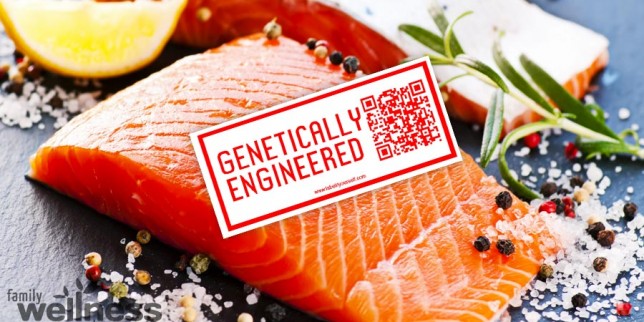– Eco Groups Challenge Canadian Government in Court over GM Salmon (Sustainable Pulse, Jan 20, 2014):
Environmental groups want a court to decide if the federal government violated its own law by permitting the manufacture of genetically modified salmon in Canada.
“Canadians expect their government to implement, not ignore, the laws that protect our ecosystems from harm,” said Tanya Nayler, one of the Ecojustice lawyers representing Ecology Action Centre and Living Oceans Society. “By granting approval for this genetically modified species without obtaining all the legally required information, the government has once again failed the environment and Canadians.”
The groups assert the approval is unlawful because it failed to assess whether genetically modified salmon could become invasive, potentially putting ecosystems and species such as wild salmon at risk. Both groups are asking the court to set aside the government’s assessment and require the government to comply with the law before permitting the manufacture of these genetically modified organisms.
Genetic material from Chinook salmon and the eel-like species ocean pout were inserted into Atlantic salmon eggs to create AquAdvantage salmon. According to the fish manufacturer, AquaBounty Canada Inc., the genetically modified salmon grows to market size faster than conventional salmon.
“The Atlantic salmon has evolved over millions of years and is found in cold-water rivers from Maine to Russia,” said Susanna Fuller of the Ecology Action Centre. “The move to commercial production of GM Atlantic salmon puts this magnificent wild fish at risk of irreversible genetic contamination.”
The lawsuit challenges decisions made by the Minister of the Environment, Leona Aglukkaq, and the Minister of Health, Rona Ambrose. Ecojustice lawyers filed a judicial review with the Federal Court on Dec. 23, 2013, and have now served notice of the lawsuit on all parties, including the fish manufacturer.
AquaBounty plans to grow the genetically modified salmon eggs in P.E.I. and then transport them to Panama, where they will grow to full size. However, the approval would also allow the manufacture and grow out of the genetically modified salmon elsewhere in Canada under certain conditions.
Another worrying aspect of this case is the lack of transparency and public consultation in the decision-making process, something that concerns Karen Wristen, Executive Director of the Living Oceans Society in B.C.
“This is the world’s first genetically modified food animal to go into production,” Wristen said. “This was done without any public debate at all and under circumstances that look like a deliberate attempt to prevent public comment. Canadians have a right to know about decisions like this in advance of them being made.”
The main legal arguments of the case are based on the Canadian Environmental Protection Act. They include:
- That the federal Ministers acted unlawfully in purporting to complete an assessment of whether AquAdvantage salmon is toxic or capable of becoming toxic without obtaining all information required by the law;
- That the Minister of the Environment had no jurisdiction to publish a notice setting out permitted uses, based on an incomplete toxicity assessment of AquAdvantage salmon;
- Alternatively, the Minister of the Environment failed in her legal duties by permitting unassessed uses of AquAdvantage salmon, such as its grow out in Canada, to proceed.
